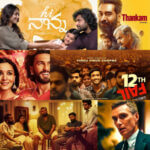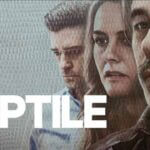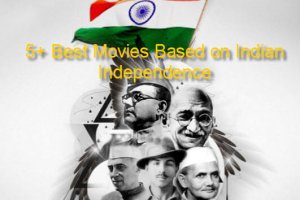‘From the hot fire of being apart,
Comes the flame that burns the heart.‘
An old dervish-looking cobbler recites this poetic verse to a seventeen-year old construction worker in Majid Majidi’s 2001 classic Baran. The movie was laced with themes like love and compassion, something which easily finds its way to nearly every Majidi movie, and Iranian movies in general.
Like most budding ‘cinephiles’, Majid Majidi became my portal to Iranian cinema. His poignant Children of Heaven (1997) is like a kindergarten story about love and care. The element of innocence in the movie would surely send you down the memory lane, when your biggest problem in life was a class text the next day. Majidi used to be the only director I knew belonging to the Iranian cinema, amazing me every time with his finesse of telling stories without any pompousness. I saw his stories rooted in the culture of his land, where human values manifest themselves in the form of beautiful creations of God.

With movies like The Color of Paradise (1999) and The Song of Sparrows (2008), Majid Majidi has painted a picture of man’s weak nature, and God’s compassionate attitude. These movies show us that people do fail in realising the humanity they were created with, but they are always reminded of it. Despite the tragedies, hope arrives and the outlook changes entirely. It’s like going through a lot of pain, only to grow mature and learn that every pain is a blessing in disguise.
I was bedridden some weeks ago, which helped me decide that I should watch Iranian movies I had been thinking of. Part of doing this was because I knew these movies were free of any sort of nudity, which was good as my family members would frequently check on me. I never felt so good being bedridden before.
The journey, which I call a revisit, started with the internationally acclaimed Abbas Kiarostami’s Koker Trilogy, shot in Koker, a north Iranian village which made me feel homesick. The first movie in the trilogy, Where Is the Friend’s Home (1987), is a classic tale of an innocent kid on a mission, something which I think is an attribute of nearly every major Iranian filmmaker. The kids play themselves, which we only learn later. The cute protagonist, Ahmad, realizes that he has brought his friend’s notebook home by mistake. He has no choice but to return the notebook to the friend before the next day arrives. The fear of seeing his friend getting suspended inspires him to go on alone to find the home of his buddy, and the entire movie is based on this search. It’s a masterpiece, more so because for me, it’s pure humanity. The simplicity with which these values are portrayed on the screen compel the viewer to search for the humanity in them. You want to be that pure, even if for a moment.

In the following movies of the trilogy, namely And Life Goes On (1992) and Through the Olive Trees (1994), Kiarostami blends reality and fiction. This process begins in the second instalment, and gets better in the third. We see how he plays with our minds to show a movie within a movie. He reuses the narrative style in the final instalment, thus making us connect on a much more personal level to the characters. These movies then border on documentary, and no matter where you are from, you feel like you know these people. Not characters, but people. The same happens in Close-Up (1990), which depicts a true story of an imposter who enacts as Mohsen Makhmalbaf, and is undergoing a trial for the same. His passion of being a filmmaker, driven by the necessity poverty brings, leads him to take this path and Kiarostami succeeds in making us root for this person, who is kind and honest at heart. The actors play themselves, thus fulfilling Kiarostami’s vision of mingling fiction with reality.
One can’t deny or overlook the Islamic culture that Iran is built upon. This culture is bound to make its way into its movies. Kiarostami’s attempt to connect us with the people of Koker reminded me of the Quranic verse which tells us that different races and nations exist so that we can ‘know each other.’ There is a wonderful scene in Through the Olive Trees, where Hossein tells the director that if rich marry the poor, the educated marry the uneducated, many of the society’s differences would be resolved. For me, that’s the biggest takeaway from the trilogy. That’s what the purpose of these movies was.
Kiarostami’s other two movies, The Wind Will Carry Us (1999) and Taste of Cherry (1997) is similar in the scope, where traveling is at the centre of the story. Taste of Cherry deals with death. Suicide in particular, and the dilemma surrounding it. If there are reasons to commit suicide, the faith in God gives a big reason not to. The journey that Kiarostami’s movies are always infused with is a remarkable symbolism denoting our spiritual quest to know ourselves and others, and to know life as well. The characters usually come from city to a village, where they see brotherhood, unity, hope and compassion in the face of adversities. This transforms the protagonists, as well as the viewers. They start dealing with their problems in a new way.
Abbas Kiarostami’s assistant in Through the Olive Trees, Jafar Panahi, who became an internationally acclaimed filmmaker himself, is yet another filmmaker with a ‘kid-on-a-mission’ movie to his kitty. The White Balloon (1995) tells the story of a small, adorable kid Razieh, who wants to buy a certain goldfish on the eve of Nowruz, the Iranian New Year. The obstacles she faces makes the rest of the movie. While her innocence which was shown in certain scenes where she talks to a stranger officer depicts the purity of her heart, we see a subtle message of oneness by the end, when she and her brother are helped by an Afghan refugee. It’s a combination of several emotions, from pain, sorrow, dejection, to hope, unity and comradeship that makes it yet another movie that does something to our core. You feel someone within you calling you, reminding you to achieve such sensitivities in your character. There’s a different kind of introspective experience one has while watching Iranian movies.

Mohsen Makhmalbaf’s Poetic trilogy is a testimony to the cultural of spiritual poems that Iran rightly boasts of. The first movie in the installation is Gabbeh (1992), which is poetic in every sense. Right from the visual treat that these movies give us, through the wide shots of colourful landscapes and attires that complement the scenery, to the narrative style, you’re drawn into their world and in the fable you’re being narrated. In Gabbeh, a young lady appears from a traditional carpet, called gabbeh, and narrates the story of her clan, which is filled with love, longing and the clan’s honour. Magical realism adds to the beauty of the movie, combined with the essential poetry that the trilogy is based on. Makhmalbaf follows this movie with the 1998 masterpiece The Silence, where a blind kid works at a musical instrument shops and tunes the instruments. Despite being misunderstood by his boss, the boy is gifted with spiritual understanding of the world around him. Though his family suffers its share of afflictions because of poverty, he finds some solace in music. Makhmalbaf explores the divine nature of music, which finds its place in Sufism, the theme this movie takes.
Women and children play essential characters in the Iranian movies. They symbolize innocence and responsibility. They act as a portal to mankind’s humanity, explored in a profound manner that connects you to yourself. The spirituality evident in the culture forms a huge basis for the movies to take their lyrical course. The films set in the rural areas seem like some folk song, the kind you will never hear anywhere else.

As much as the poetry in the Iranian movies makes them beautiful, they are heart-wrenching at the same time. The pain is shown through different spheres, from the basic fallibility of human to the socio-political scenarios prevalent in the nation that drive a human to oppress the other. The third part of the trilogy, The Gardener (2013), is basically a documentary where Makhmalbaf with his son explores the Baha’i faith. The Baha’i community has been subjected to the atrocities by the majority community for several decades. In the third instalment, Makhmalbaf takes this concept of plurality to the next level and tries to understand this faith by talking to people from the community. This movie is a political statement against those who hamper the fabric of harmony by turning people against each other through fake narratives, in this case, the Iranian regime. Despite such a dark theme, the movie doesn’t go away from its poetic essence that makes it a part of the acclaimed trilogy. The entire movie is set in a garden, with different kinds of flowers enhancing its beauty. They are being taken care of by the gardener, who is a Baha’i himself.
This brings me to someone whom I consider the poster boy of ‘controversial’ Iranian movies – Jafar Panahi. The filmmaker made a strong political statement, albeit subtle, in his 2006 sports drama Offside, where a bunch of girls are held by security guards for trying to sneak in to watch a football match. The film uses humour and a feeling of camaraderie to show women as equal citizens, and make you sympathize with them. Panahi also made an effortless documentary style movie Taxi Tehran (2015), where he plays himself and acts as a taxi driver. His interaction with different passengers and a peek into their lives and thoughts is what makes this movie beautiful from a humanitarian angle. Again, knowing each other comes into play here, and Jafar seems to have taken cue from his mentor Abbas Kiarostami in blending reality and cinema. We also see him talking about his arrest, and the subsequent ban on his moviemaking by the government. In one scene, his niece Hana is talking about a filmmaking assignment she’s been given, where she has to make a short movie following the ridiculous guidelines given by her teacher. The guidelines make Jafar scoff, and that’s where you know he’s using the girl to make a stark commentary on the authoritarian regime of the nation. This is not the first movie where he attacks the government. His 2011 documentary movie This Is Not A Film is a milestone in the history of cinema. After being banned from movie making and movie production, Jafar resorts to recording his daily life where he enacts his screenplay, watches TV, talks to his lawyer, talks about the government and so on. He gets his friend and fellow-filmmaker Mojtaba Mirtahmasb to direct most portions of the movie, thus evading his conditions of arrest. The film was famously smuggled out of Iran in a flash drive hidden in a birthday cake. It then made its mark in multiple film festivals, particularly the Cannes Film Festival. Jafar Panahi’s presence of mind that went in making this documentary was lauded by both film critics and cinephiles alike. He dedicated this film to all the Iranian filmmakers, who either bear the consequences of telling the truth, or felt suppressed enough to not talk about it through cinema.

A common link between all these innovative filmmakers is that they all are a part of the Iranian New Wave. Their quirky, never-seen-before style of filmmaking not only speaks highly of their genius, but tells a lot about the cultural and political aspect of their native land. In a country where the walls of nearly every home are adorned with a poem from Hafiz, the 14th-century Persian Sufi poet from Shiraz in Iran, there can hardly be any escape from the mysticism seen clearly in the Iranian movies. And in the land where, in contrast with its spiritual history and heritage, the filmmakers are arrested for expressing themselves, the proverb ‘necessity is the mother of invention’ is bound to be manifested through the native auteurs.
It seems being bedridden has its own perks.
– Shahrukh Jamal















Add Comment